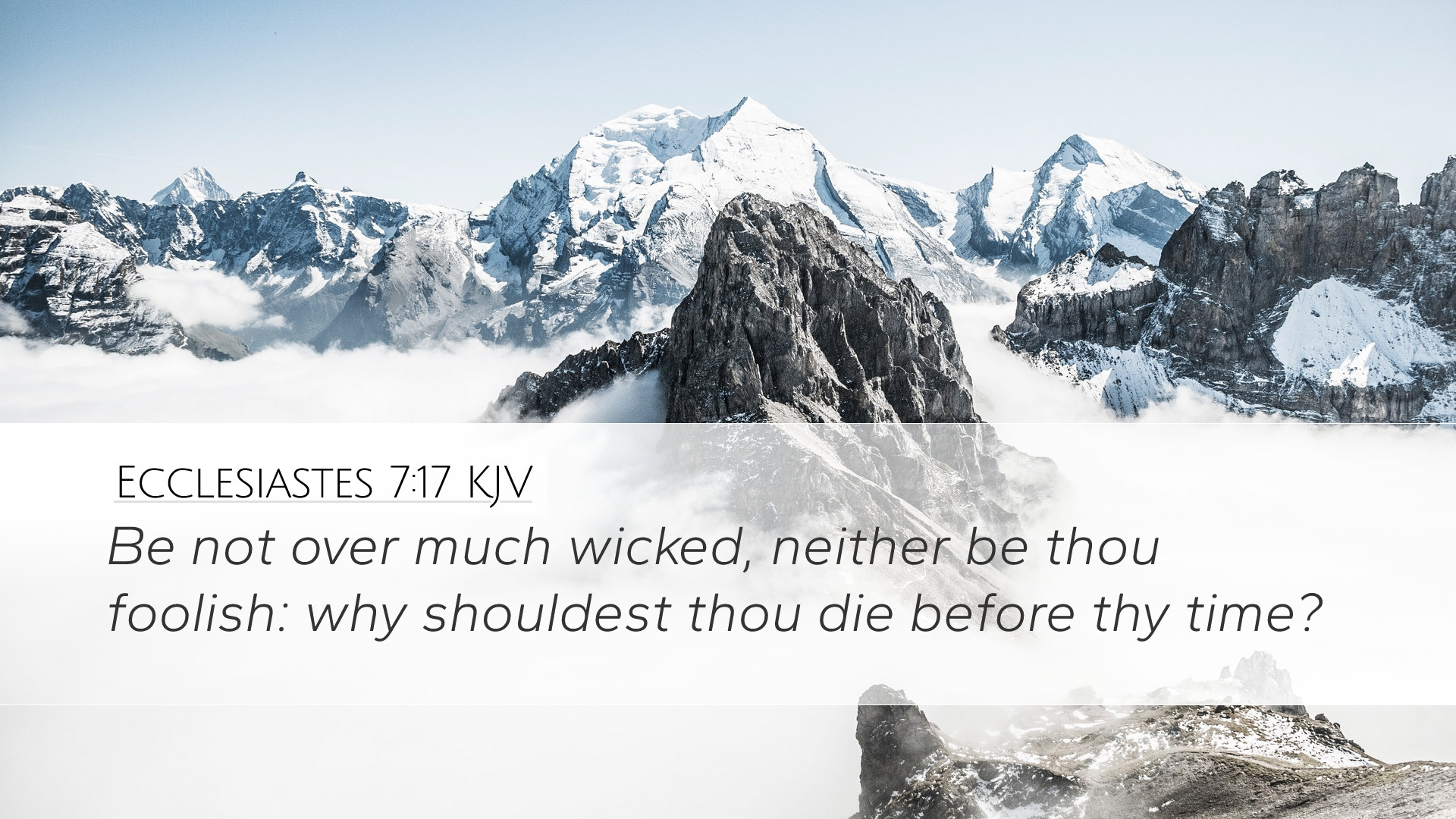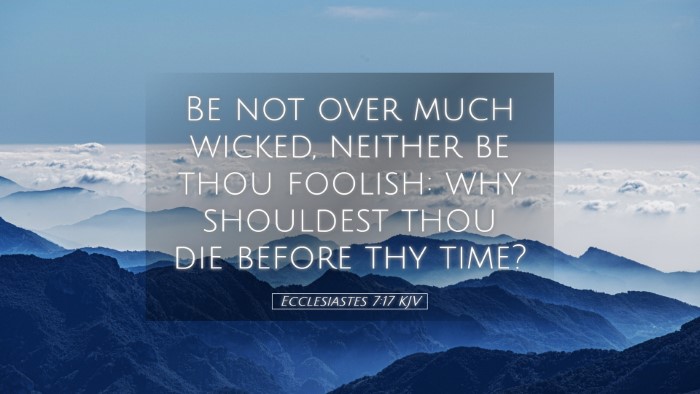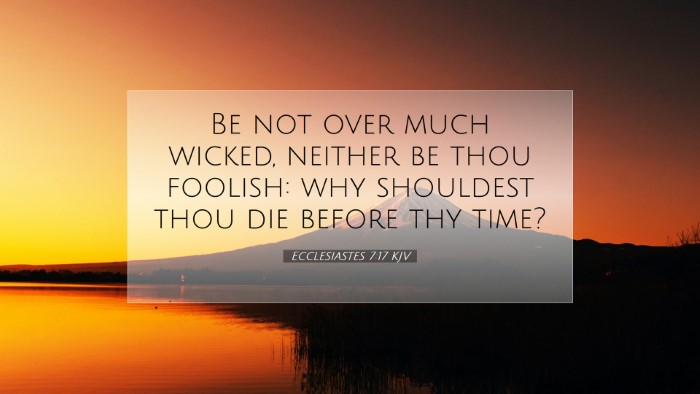Commentary on Ecclesiastes 7:17
Verse: "Be not over much wicked, neither be thou foolish: why shouldest thou die before thy time?" (Ecclesiastes 7:17, KJV)
Introduction
This verse presents a profound warning against excesses in both wickedness and folly. The Preacher, traditionally identified as Solomon, imparts wisdom derived from life experience, emphasizing the importance of moderation in one’s moral and ethical conduct. This commentary synthesizes insights from respected public domain commentaries to provide depth and understanding for pastors, students, theologians, and Bible scholars.
Analysis of the Text
The passage can be broken down into two central admonitions: the caution against being "over much wicked" and the warning against being "foolish." These are connectional thoughts that hinge upon the understanding of life and its fragility.
1. "Be not over much wicked"
Matthew Henry emphasizes that this phrase indicates a warning to avoid extreme wickedness. He observes that there is a possibility of being so entrenched in sin that one may ignore its consequences, which ultimately leads to destruction. Henry notes that this is a plea for self-examination, urging individuals to reflect on their moral standing and the potential ramifications of their actions.
Albert Barnes elaborates that the phrase signifies not merely an avoidance of overt wicked acts, but a holistic approach to righteousness. He interprets this excessive wickedness as a lifestyle that invites judgment. Barnes helps the reader understand that wickedness leads to inevitable consequences, as it draws one away from the path of life.
2. "Neither be thou foolish"
Adam Clarke comments that foolishness includes both moral and intellectual folly. He observes that the fool does not learn from the wise counsel of others and delves into a life filled with trivial pursuits. Clarke adds that wisdom is vital for discerning the boundaries of one’s actions, suggesting that folly and immorality are often linked paths leading to premature demise.
Theological Implications
The verse profoundly illustrates the theological concept of the sovereignty of God in relation to human behavior. The Preacher suggests that God has a purpose for each life, and engaging in enhanced wickedness or foolishness may disrupt divine timing. Here are some implications:
- Responsibility: Every individual is responsible for their choices, which have eternal consequences.
- Moderation: The teachings encourage a balanced life characterized by righteousness and wisdom.
- Grace and Judgment: While God extends grace, there remains a theme of judgment for those who disregard His warnings.
Practical Applications
For pastors and leaders, this text serves as a moral compass in teaching congregants about the dangers of excessive behavior—whether sinful or foolish. Here are some practical applications:
- Preaching Against Extremes: Sermons can focus on leading lives of temperance and wisdom, avoiding extremes that lead to spiritual death.
- Encouraging Accountability: Foster an environment where believers can hold one another accountable for their spiritual health.
- Wisdom in Decision Making: Guide congregants towards seeking divine wisdom in making daily life choices.
Conclusion
Ecclesiastes 7:17 encapsulates a depth of wisdom that transcends generations. By blending insights from Matthew Henry, Albert Barnes, and Adam Clarke, we understand this verse as a timeless warning about the paths of wickedness and folly. It is a call to lead lives of reflection, responsibility, and harmony with God’s plan for our lives. As we meditate on these words, may we strive to embody the wisdom imparted through this instructional text, recognizing the importance of a balanced life in the sight of God.


